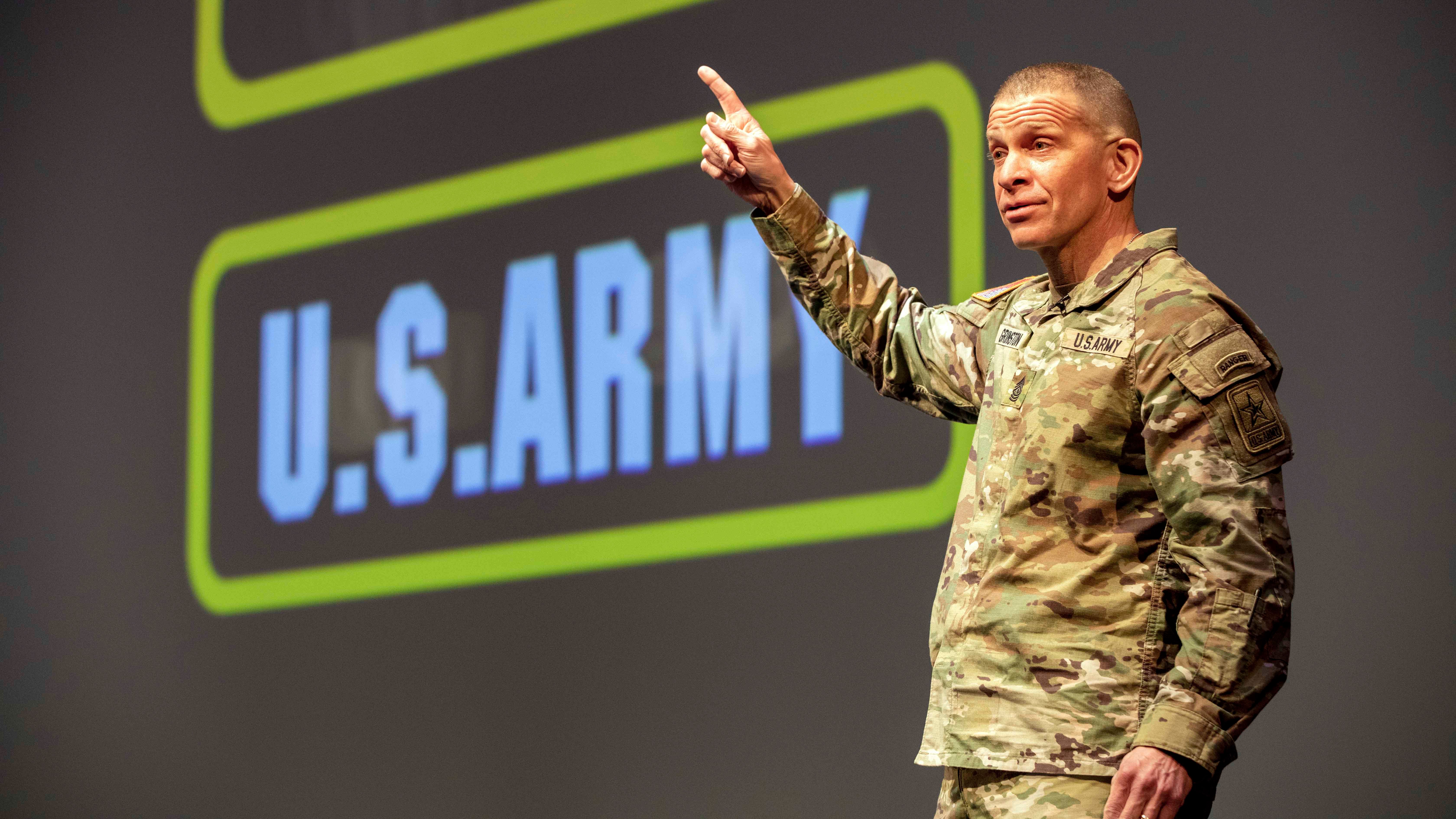AUSA Coffee Series Features Grinston
AUSA Coffee Series Features Grinston

Sgt. Maj. of the Army Michael Grinston will speak Feb. 14 as part of the Association of the U.S. Army’s Coffee Series.
The in-person event at AUSA’s headquarters in Arlington, Virginia, will open at 6:30 a.m. Eastern for registration and badge pickup. The program is scheduled to begin at 7:15 a.m.
Online registration is available until 5 p.m. Eastern Feb. 10. If seating is still available, same-day registration will be accepted on a first-come, first-served basis beginning at 6:30 a.m. Eastern Feb. 14.
The event is free for military or government civilian personnel and members of the media. For other attendees, click here for more information.
Attendees are encouraged to vaccinated against COVID-19. Masks are optional.
Now in his fourth year as the Army’s senior enlisted leader, Grinston is slated to discuss several topics during the AUSA event, including recruiting and retention, the Army’s support to Ukraine and updates on the Army’s body composition program and the Army Combat Fitness Test.
During his tenure, Grinston has pushed efforts to build stronger, more cohesive teams; improve quality-of-life programs for soldiers and their families; and encourage caring, commonsense leadership from teams and squads on up.
He has worked on these efforts as the Army responded to a devastating pandemic, crises in Europe and the Middle East, the fraught withdrawal from Afghanistan, civil unrest across the U.S. and natural disasters, all while training and preparing for the nation’s next call.
“We have a lot of requirements for our Army. That is the stress that I worry about,” Grinston said last fall. “I don’t see a whole bunch of things coming off the plate,” he said then, noting that there were still soldiers in Iraq and Syria. Thousands more were in Europe and Korea, while others responded to forest fires, hurricanes and COVID-19.
The demand for soldiers remains high, reinforcing Grinston’s efforts to take care of the Army’s people.
“We have to have good quality of life. We have to put effort into our barracks, our housing, our health care, our child care, spouse employment,” he said. “The soldiers we have, we’ve got to take care of, because they’re under a huge strain.”
For more information or to register, click here.

